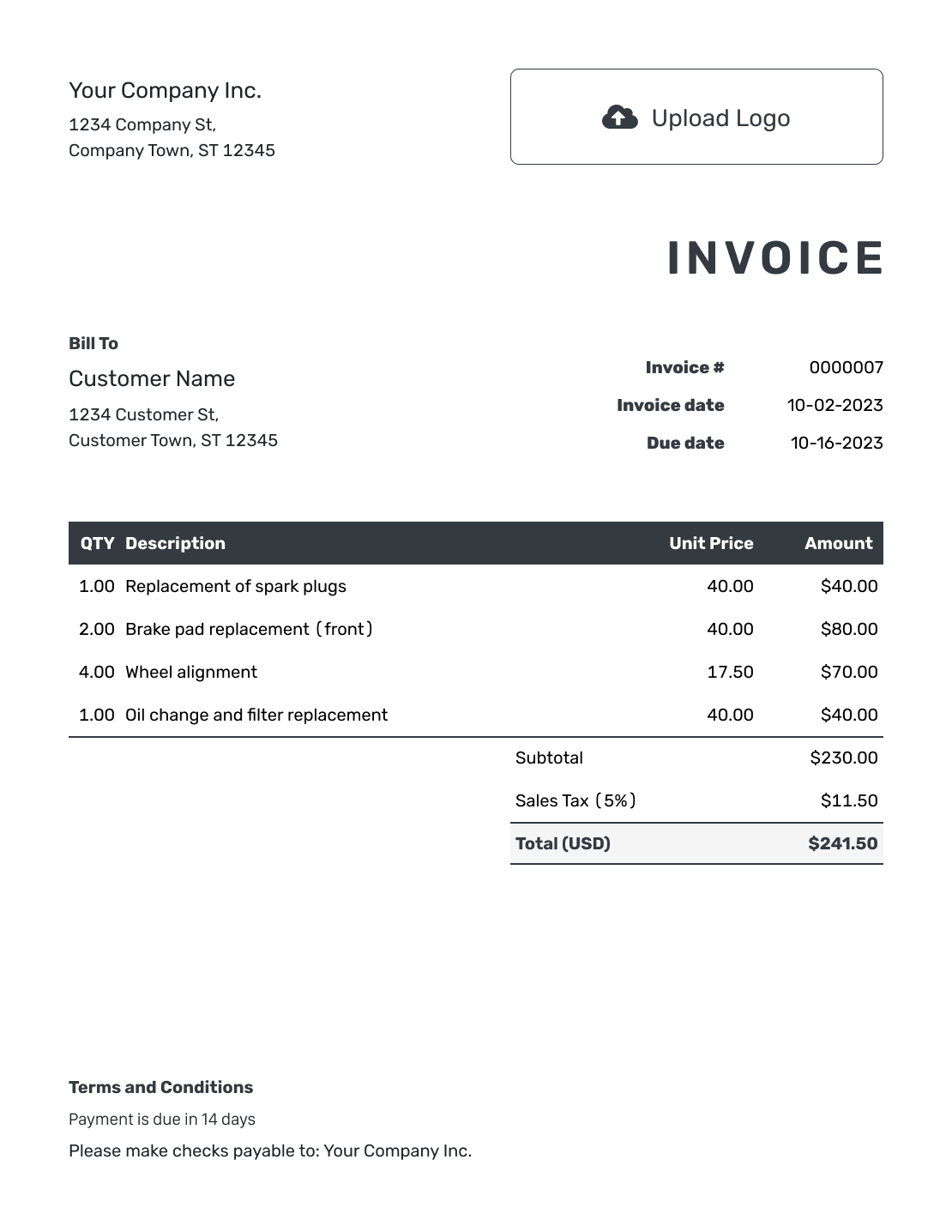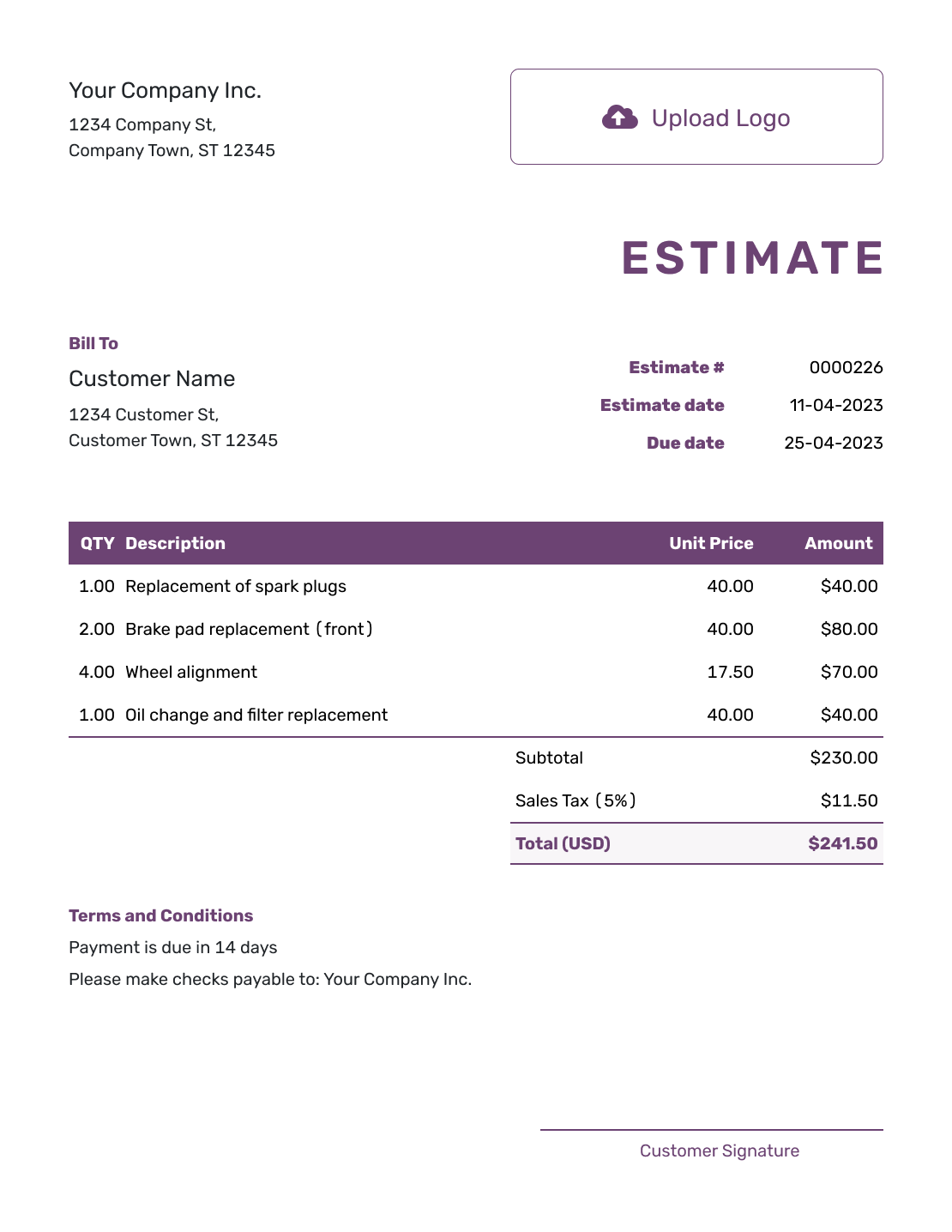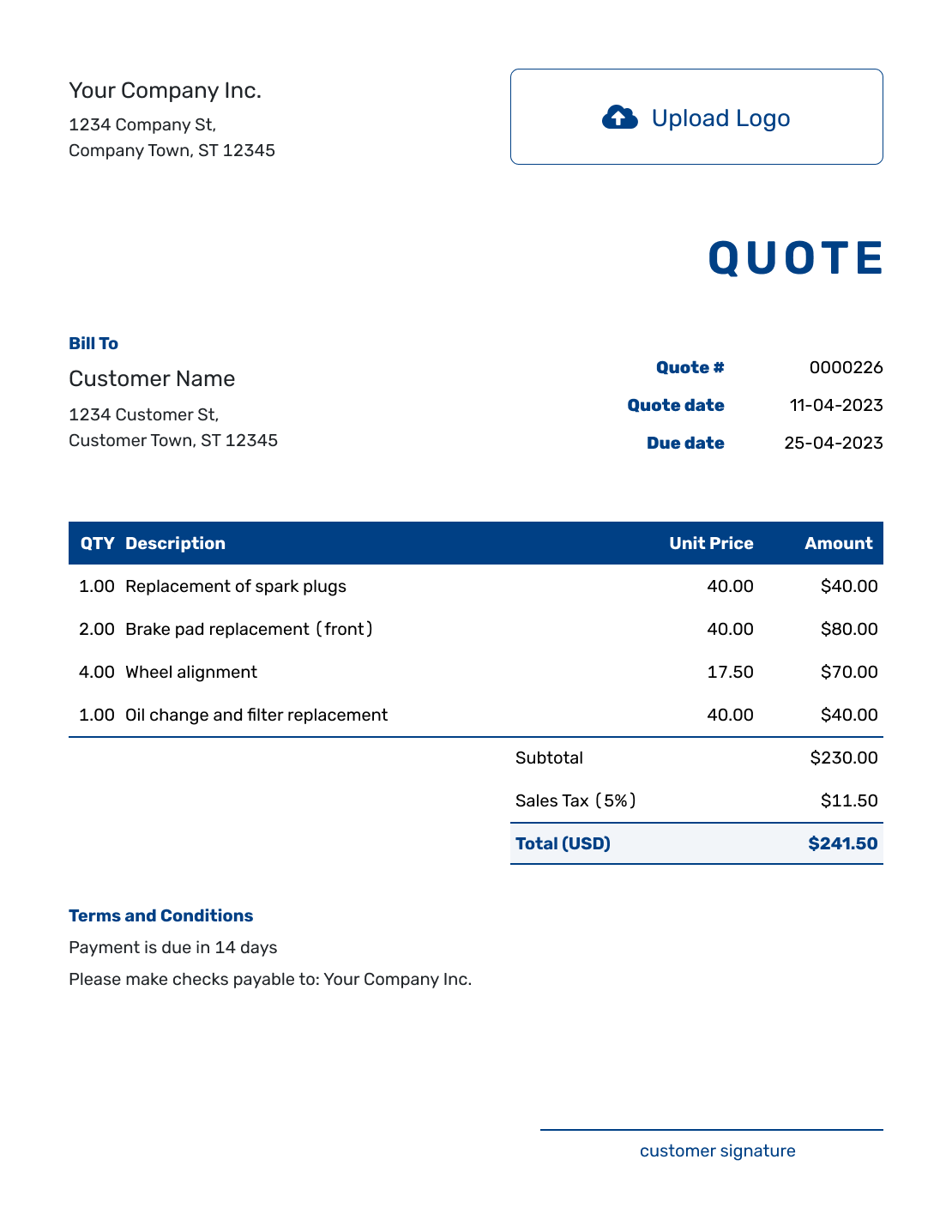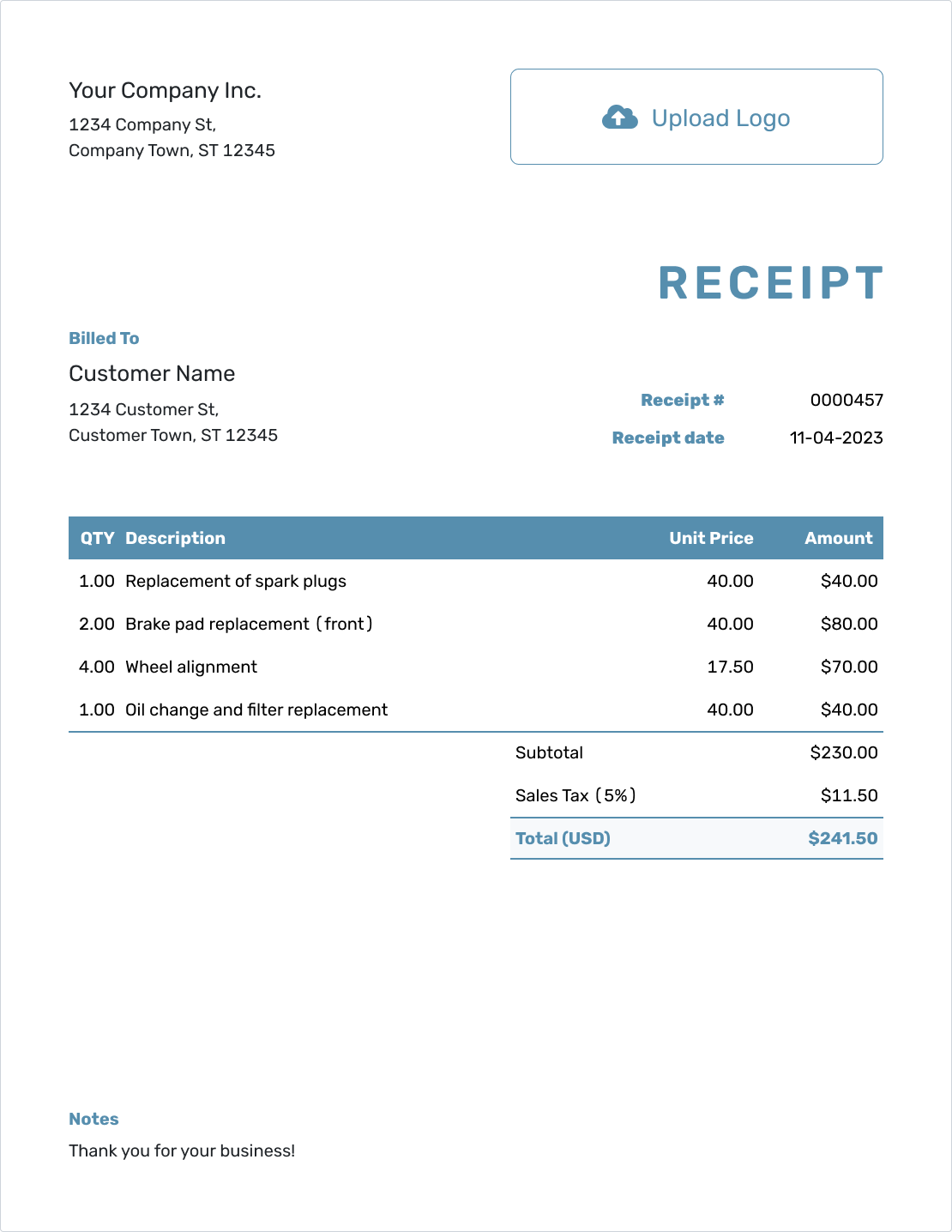Free Invoice Generator

Frequently Asked Questions
Find the answers to commonly asked questions about invoicing below:
-
What is an invoice?
An invoice is a document sent by a provider of goods or services to the purchaser that specifies the amount and costs of the services or products provided. It establishes an obligation on the part of the purchaser to pay, creating an account receivable.
-
Why should I use an invoice template?
Using an invoice template ensures consistency, professionalism, and accuracy in your business transactions. It saves time by standardizing the format for your invoices, which helps streamline your billing process and ensures that all necessary details are included.
-
How should I choose and use invoice numbers?
Invoice numbers are unique identifiers for each invoice you issue, helping you track payments and organize financial records. Docelf automatically starts your numbering at 1001, but you can choose any starting number you like for your first invoice. After that, the numbers are incremented in steps of 1. For instance, starting with 1001 and then continuing sequentially ensures every invoice is uniquely and clearly identifiable, simplifying your accounting and audit processes.
-
What are the legal requirements for an invoice?
Legal requirements for invoices can vary by country, but generally, they must include the seller's name and address, the buyer's name and address, a unique invoice number, the date of the invoice, a description of goods or services provided, the amount charged, and applicable taxes. Always consult local laws to ensure compliance.
-
What is the difference between an invoice and a receipt?
An invoice is a request for payment issued before the payment is made, detailing the amount due for goods or services provided. A receipt is a document issued after payment has been made, serving as proof of the transaction. Invoices are used to track sales or services rendered, while receipts confirm completion of payment.
-
How should I send an invoice to ensure it gets paid on time?
To ensure timely payment, send invoices immediately after goods or services are delivered, include clear payment terms, and follow up with reminders as the due date approaches. Offering multiple payment options and sending invoices electronically can also speed up the payment process.
-
What is the difference between an invoice and a bill?
Invoices and bills are both documents requesting payment. The term "invoice" is commonly used by businesses when issuing a request for payment to clients, while "bill" is typically used to refer to an informal request for payment, like those in restaurants or between consumers and utility providers.
-
What does "Net 30" mean in an invoice?
"Net 30" is a payment term used on invoices to indicate that the full payment is due within 30 days of the invoice date or the goods delivery date. It is a common credit term that provides the buyer a set period to pay the invoice to manage cash flow more effectively.
-
How do payment terms like "Net 30" impact business cash flow?
Payment terms such as "Net 30" impact business cash flow by determining when payments are received. Offering longer payment terms may improve customer relations and competitiveness but may also delay cash inflows, potentially affecting a business's ability to cover operational expenses and make timely investments.
-
What are common payment terms used in invoices?
Common payment terms used in invoices include:
- Net 30, Net 60, Net 90 - Indicates that the full payment is due within 30, 60, or 90 days of the invoice date, respectively.
- 14-Day Payment - Payment is due within 14 days of the invoice date, offering a balance between immediate and longer-term payments.
- Due on Receipt - Requires payment as soon as the buyer receives the invoice.
- COD (Cash on Delivery) - Payment is made at the time the goods are delivered.
- 2/10 Net 30 - Offers a 2% discount if the invoice is paid within 10 days, otherwise, the full amount is due within 30 days.
-
What should I write in the terms and conditions field of the invoice template?
In the terms and conditions field of an invoice template, you should clearly state the payment terms, including the due date, accepted forms of payment, and any late payment fees. Additionally, include details on delivery terms, warranty or service guarantees, and return policies if applicable. Clearly outlining these conditions helps manage expectations and can protect your rights in a transaction, making it easier to resolve disputes or handle late payments.
Free Templates from Docelf
Create free business documents like invoices, estimates, quotes and receipts from these blank, printable and downloadable templates




